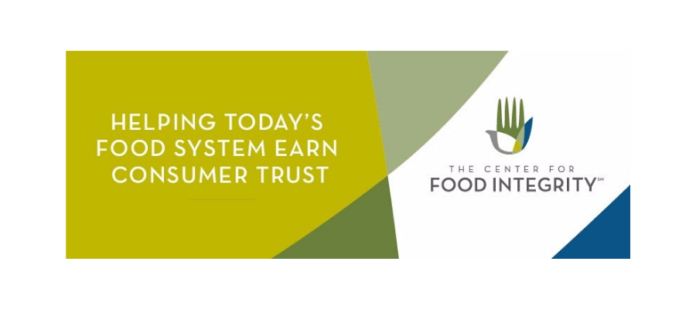
GLADSTONE, Mo. – Tues., April 28, 2020 – In the midst of COVID-19, new sustainability priorities are emerging. Focus on health and safety is first and foremost. Packaging and single-use plastics are less of a concern as convenience, necessity and safety drive a dramatic spike in take-out and home deliveries. Worker health and safety is front and center with a focus on essential workers – doctors, nurses, grocery store employees, food production line workers, and the like. How will shifting priorities continue to shape the sustainability landscape now and as the pandemic subsides?
“When it comes to environmentalism, in particular, I think a lot of people are putting it on the back burner,” said Kevin Ryan, founder of Malachite Strategy and Research and a founding member of The Center for Food Integrity (CFI) Consumer Trust Insights Council. “We can only handle one big crisis at a time, but I think the issue might come back with a sharper edge.”
Ryan is a featured panelist on a free webcast “Shifting Priorities: COVID-19 and the New Face of Sustainability,” Thursday, May 14, 11 a.m. CDT. Hosted by CFI CEO Charlie Arnot, the webcast also includes Ujwal Arkalgud, an award-winning cultural anthropologist, co-founder of MotivBase and a member of the CFI Consumer Trust Insights Council.
“For the first time now we’re seeing a change,” said Arkalgud, who points to the entry of issues around the labor force and, in particular, being responsible toward wealth inequalities that exist. “We’ve seen specific discussions among consumers about everything from ensuring companies pay a living wage to providing full sick pay, generous health care benefits and job training programs to support workers who may face loss due to automation in the post-coronavirus world.”
The webcast will cover current shifts in sustainability, the potential increase in sustainability demands post-pandemic, the new non-negotiables for food companies and brands moving forward and an approach for navigating sustainability tradeoffs and making values-based decisions that are truly sustainable.
“With so much at stake, the food system must cautiously consider tradeoffs before caving to demands that are deemed sustainable, but may fall short and stifle the technology and innovation that’s truly helping produce more food, more sustainably,” said Arnot. “Dedicate the resources necessary to make decisions that result in real sustainability and that you can confidently stand behind for the long-term.”
Register at www.foodintegrity.org. The webcast is funded by the United Soybean Board.
The Center for Food Integrity is a not-for-profit organization that helps today’s food system earn consumer trust. Our members and project partners, who represent the diversity of the food system, are committed to providing accurate information and working together to address important issues in food and agriculture. The Center does not lobby or advocate for individual companies or brands. For more information, visit www.foodintegrity.org.







